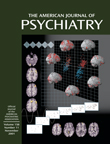To the Editor: The outstanding studies by Anthony W. Bateman, M.A., F.R.C.Psych., and Peter Fonagy, Ph.D., F.B.A.
(1,
2), confirmed that in patients with borderline personality disorder, long-term psychodynamically oriented psychotherapeutic treatment first undertaken in the structured environment of partial hospitalization then followed up in an organized outpatient setting (together with pharmacotherapy as needed to make the individuals amenable to psychotherapeutic work) brings about lasting behavioral changes, possibly also structural alterations in personality. For the severely ill patients who had previously undergone partial hospitalization, the extended outpatient study
(1) demonstrated that statistically significant reductions in such outcome measures as suicide attempts, self-mutilations, depressive symptoms, and inpatient days achieved during the original 18-month investigation
(2) were maintained. It also substantiated continued statistically significant gains on all outcome criteria in the partially hospitalized patients—in contrast to the equally disabled control group—during the 18-month follow-up period.
Unfortunately, Drs. Bateman and Fonagy did not include sufficient data on the specific categories of psychotropic medications administered—the number of patients taking various classes of medications and the individual kinds within each class—in both the partial hospitalization and control groups at the beginning and end of the follow-up period
(1), in the original partial hospitalization group
(2), as well as possibly at 6-month intervals in between, and the juxtaposition of dose ranges and their means at various periods during the investigation. Documentation of a continuously decreasing need for various classes of pharmacotherapeutic drugs, which was greater in the partial hospitalization group than in the control group, might have further augmented and graphically illustrated the fundamental significance of their findings. The authors merely stated the overall number of patients still taking any medication at the end of the follow-up period and at the beginning and end of the partial hospitalization period without stating the number of subjects treated with various types of psychotropic medications during the study.
Of the partial hospitalization group
(2, p. 1565), Drs. Bateman and Fonagy wrote, “Medication consisted of antidepressant and antipsychotic drugs prescribed as appropriate,” without giving further details. No mention was made of mood stabilizers; however, the authors stated in the follow-up report
(1, p. 38) that “9.1% (N=2) of the partial hospitalization patients were taking
mood stabilizers [emphasis added] and antidepressants at the end of follow-up.” Were pharmacotherapeutic algorithms, established before the investigation, followed in treating the behavioral, affective, and perceptual target symptoms of the study patients?
Psychopharmacologic treatment was an integral and necessary part of the study. The inclusion of more specific details in the published record would further increase the scientific value of these important results, advance their replication and extension to an outpatient study group without previous partial hospitalization, and subserve their application to everyday clinical work.

